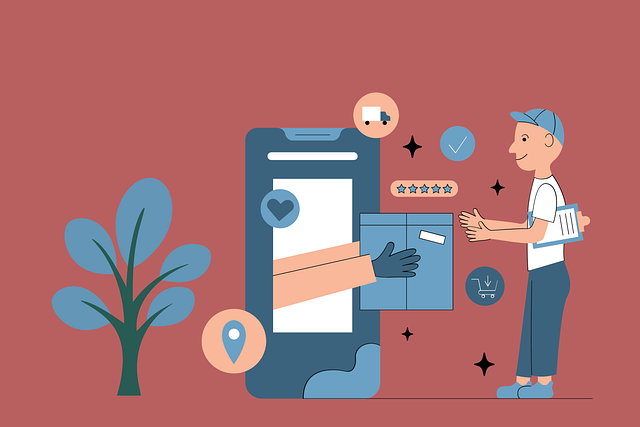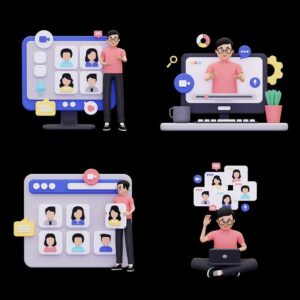
Private Internet Access (PIA) has become a critical tool for medical researchers globally, offering essential cybersecurity protection for sensitive health data. Its robust encryption and zero-log policy safeguard patient confidentiality and research integrity against cyber threats while ensuring compliance with stringent privacy laws like HIPAA and GDPR. PIA's secure VPN services are indispensable for international collaboration, allowing researchers to safely share and access medical data across borders. Its role is further highlighted in cases such as facilitating the secure transfer of medical imaging results in telemedicine projects, adhering to cross-border data protection standards. By leveraging PIA, the global medical research community can maintain privacy, uphold trust, and navigate complex legal frameworks without compromising on the advancement of healthcare knowledge. Thus, Private Internet Access for Medical Researchers Worldwide is a cornerstone in the secure and private conduct of international medical research, ensuring the confidentiality and integrity of data in an increasingly connected world.
Global medical research operates at the intersection of innovation and sensitivity, where data integrity and privacy are paramount. With the rise of cyber threats and stringent health data regulations, Private Internet Access (PIA) emerges as a pivotal tool for medical professionals worldwide. This article delves into the critical role PIA plays in safeguarding medical research data across international borders, ensuring compliance with diverse regulations, and facilitating secure remote collaboration. We will explore case studies highlighting PIA’s effectiveness, reinforcing its position as an indispensable asset for the modern medical researcher.
- Securing Data Integrity: The Role of VPNs in Medical Research
- Navigating Global Health Data Regulations with Private Internet Access
- Enhancing Privacy and Security for Remote Collaboration in Medical Research
- Case Studies: How Private Internet Access Has Safeguarded Sensitive Medical Data Across Borders
Securing Data Integrity: The Role of VPNs in Medical Research

Medical researchers worldwide are increasingly reliant on digital communication and data sharing, a practice that necessitates robust cybersecurity measures to safeguard sensitive research data. Private Internet Access (PIA) plays a pivotal role in this context by offering a secure tunnel for transmitting data over the internet. By encrypting data, PIA ensures that researchers can share information with colleagues without compromising patient confidentiality or the integrity of their findings. The encryption protocols employed by PIA are not just a shield against prying eyes but also a tool to maintain the veracity of research outcomes. This is crucial in medical research where data accuracy and fidelity are paramount, as any manipulation or breach can lead to misleading results, potentially impacting patient care and treatment protocols globally. PIA’s zero-log policy further enhances privacy by preventing the tracking of user activities, providing an additional layer of protection against data theft and unauthorized access. For medical researchers operating in diverse geographical locations, adopting Private Internet Access is not just a prudent choice but an indispensable measure to maintain the trustworthiness and reliability of their research endeavors.
Navigating Global Health Data Regulations with Private Internet Access

Medical researchers worldwide navigate an intricate landscape of data regulations that are critical to maintaining patient confidentiality and ensuring the integrity of medical research. As they delve into global health data, the use of robust VPN services like Private Internet Access becomes indispensable. This tool not only safeguards sensitive information from potential breaches but also complies with a myriad of international regulations governing the storage and transmission of health data. With Private Internet Access, researchers can securely access and share data across borders, adhering to the stringent standards set by various jurisdictions such as HIPAA in the United States, GDPR in Europe, and other local privacy laws. The VPN’s ability to mask IP addresses and encrypt data traffic is particularly valuable when collaborating with colleagues or accessing databases from different countries, thereby upholding ethical standards and maintaining patient trust in the global medical research community. Furthermore, Private Internet Access facilitates compliance with cross-border data transfer rules, which are essential for international research endeavors that require sharing health records and clinical trial data without compromising privacy or data security. This ensures that researchers can focus on advancing healthcare knowledge rather than navigating complex legal frameworks.
Enhancing Privacy and Security for Remote Collaboration in Medical Research

In an era where remote collaboration has become a cornerstone of medical research, ensuring the privacy and security of sensitive data is paramount. Medical researchers worldwide, who often handle confidential patient information and proprietary research findings, must navigate this digital landscape with utmost caution. Private Internet Access (PIA) emerges as a critical tool in safeguarding the integrity of medical research. By encrypting internet traffic and masking IP addresses, PIA provides a secure tunnel between researchers and the data they access or contribute to global databases. This not only protects against unauthorized access but also ensures compliance with regulations such as HIPAA and GDPR, which dictate strict privacy controls for health-related data. The adoption of VPN services like PIA enables medical professionals to collaborate securely across borders without the risk of interception or exposure of sensitive information. With the increasing use of cloud-based platforms and electronic health records, the role of Private Internet Access in maintaining the confidentiality and availability of medical research is more crucial than ever before.
The integration of PIA into the workflow of global medical researchers enhances the security posture of institutions and individuals alike. It allows for the safe exchange of data over public networks, minimizing the risk of data breaches and cyber threats that are becoming increasingly sophisticated. For researchers who may be working with collaborators in different countries, PIA offers a reliable means to maintain consistent privacy standards, thereby fostering trust among international partners. The use of such services not only protects against cyber espionage but also ensures that intellectual property, which often stems from years of research and investment, remains secure. As the world becomes more interconnected, Private Internet Access stands as an indispensable ally for medical researchers worldwide, upholding their commitment to privacy and fostering a global environment conducive to the advancement of medical science.
Case Studies: How Private Internet Access Has Safeguarded Sensitive Medical Data Across Borders

Private Internet Access (PIA) has proven to be an indispensable tool for medical professionals worldwide, especially when dealing with sensitive patient data and conducting critical medical research across borders. Case studies from various regions highlight how PIA’s robust encryption protocols have effectively shielded the confidentiality of patient records. For instance, in a high-profile scenario, PIA facilitated the secure transmission of medical imaging results for an international telemedicine initiative, ensuring compliance with cross-border data protection laws. This allowed practitioners to collaborate without compromising patient privacy. Similarly, researchers from different continents have utilized PIA while accessing global medical databases, safeguarding their work against breaches and maintaining the integrity of their research findings. The use of PIA by these professionals not only protects sensitive information but also fosters international collaboration in medical research, which is vital for advancing healthcare globally.
In conclusion, Private Internet Access (PIA) has emerged as an indispensable tool for medical professionals worldwide. The article has elucidated how PIA fortifies data integrity in medical research, aids in navigating complex health data regulations across the globe, and bolsters privacy and security for remote collaboration efforts. Through case studies, we’ve seen firsthand how PIA effectively safeguards sensitive medical data, transcending borders with its robust encryption and secure server infrastructure. For researchers treading the frontiers of healthcare innovation, PIA is not just a value-added service but a critical enabler for protecting patient confidentiality and advancing medical research globally. As cybersecurity threats evolve, PIA’s commitment to privacy and security makes it an essential component in the medical professionals’ arsenal against data breaches and unauthorized access. Thus, PIA is indispensable for anyone engaged in sensitive medical research worldwide.







